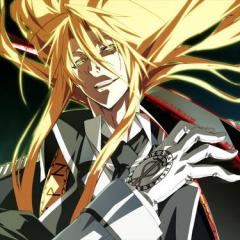Romanticization of War in Fiction
First, let me say this outright... I have absolutely no problem whatsoever with the romanticization of war in fiction. I love bloody epic war stories even more than I love sushi and ice cream. However, one thing I've noticed as I've read various historical fiction and fantasy is that the bloodier and more horrid a war is, the more it gets romanticized.
Western Examples
The Hundred Years War- The Hundred Years War is perhaps the most obvious example of a war being romanticized in the Christian West. Joan of Arc, the Black Prince... and dozens of other villains and heroes who have made their way from history into fiction and legend from that era. However, the introduction of massive mercenary armies of this era scarred the continent for centuries to come, and millions died during this era from the war and diseases that spread as a result of the war. It was also a period of the rise of French and English nationalism and the creation of professional standing armies, both of which are mixed blessings at best.
The Revolutionary War (US)- Now, I'm American... so naturally I instinctively take pride in our nation's war for independence... but as an amateur student of history, I am quite well-aware that the Revolutionary War was not a clear-cut conflict of freedom-seekers versus monarchists. To be honest, just reading the original, pre-US constitution tells me everything I need to know about the motivations behind the delegates at the convention. The self-interest, prejudice, and greed inscribed between the lines is fairly disgusting, considering the bluster that ended up in the papers at the time.
The Trojan War- This is a genocidal war that started because a married princess took a liking to a foreign prince, had sex with him, then ran away with him. An entire civilization vanished because of this... a fact that I find unbelievably disgusting, looking at it from an objective point of view.
World War II- I'm frequently fascinated by the degree to which this era is romanticized, despite the fact that there are still living witnesses to it. It is the deadliest war in recorded history, but memories of the reality are already fading in some parts of the world less than a hundred years later.
Eastern Examples
The Fall of the Han and the Three Kingdoms Era- This era is frequently portrayed as an era of military and civic heroes that eventually led to the rise of a great dynasty... but it was also a period that killed countless millions from famine, bandit raids, military plundering, and battles as massive as any seen in WWII. In the last census taken before the fall of the Later Han Dynasty, there were over fifty-six million citizens of the empire... and in the first census after the rise of the Jin Dynasty, there were only slightly more than sixteen million. This is perhaps the most romanticized conflict in history, and yet it is also the second-deadliest recorded war in human history as well (WWII being the deadliest).
The Sengoku Jidai- I've mentioned that this period of civil war in Japan is highly romanticized over there... and that is actually an understatement, when it comes down to it. It was a period where power and influence were in a constant state of flux, with the Ashikaga Shogunate proven incompetent to rule and various warlords seeking to carve out their own pieces of the pie both for Clan and individual gain. However, very few of the 'heroes' of the age are seen as 'evil'. Nobunaga, while he was a social progressive, was also known for his ruthlessness and cruelty, as well as disregard for traditions and religion. Tokugawa, while he was a repressive social conservative, was also a builder of cities and a brilliant administrator. Hideyoshi, while he was a brutal conqueror, was also an example of a man clawing his way up from the cesspool to the heavens. Similar contradictions defined most of the great warlords of the era, with the Imagawa being both military expansionists and great cultural patrons, and the Hojo being great architects and engineers as well as highly ambitious nepotists. This is an era that has so many highly colorful characters whose actions were recorded in detail that it couldn't help but be romanticized... but the reality of it was that it was an era of starvation, desperate poverty, and immense uncertainty.
The Bakumatsu/Meiji Restoration- I don't think I need to go into the degree to which this era romanticized the samurai culture and fed Japanese nationalism, because its result was Japan's policies leading up to and during WWII. This was essentially a large and brutal civil war between two factions (further split into many smaller factions) within Japan that disagreed violently over how to deal with foreign influence in the face of Ming China's rape-by-colonization on the mainland. Assassinations, political terrorism, and brutal oppression defined this period. In the end, what you got was a country who presented a strong face to the world but was still unable to come to terms with what it wanted to do at home.
As a conclusion
Human beings have a fascination with war that leads to its romanticization, and I honestly am no exception to that rule. I enjoy war period historical fiction immensely, and I have absolutely no objection to fantastical speculation on the capabilities and personality of individuals living in those eras. However, the immense cost - both economic and human - of war is almost always forgotten afterwards... and I intensely dislike it when someone chooses to forget just what those costs are. Fiction is harmless, but ignoring the lessons of history isn't.
- Kenshin_sama, Tenkuru, Mr Poltroon and 4 others
-
 7
7




4 Comments
Recommended Comments